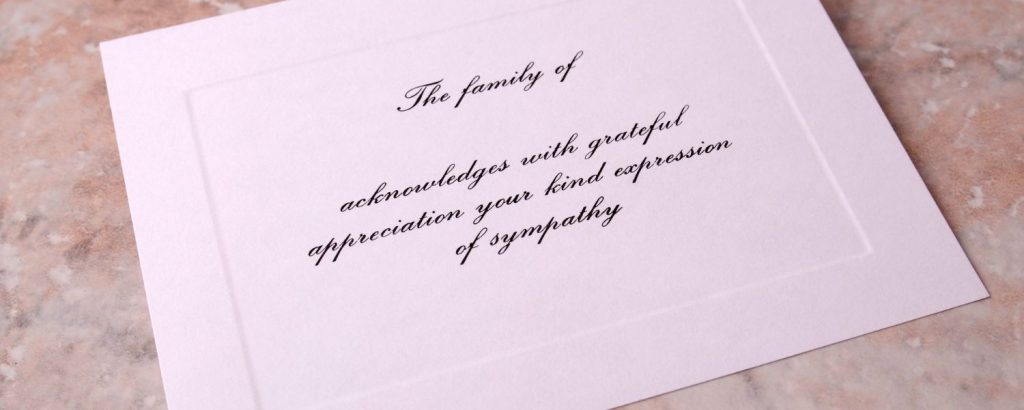
Finding the correct things to say when someone we care about loses a loved one may be rather difficult. One of the most important ways to provide care and support during such a trying time is to express sympathy. This guide aims to provide some helpful phrases and tips on expressing sympathy in words effectively and compassionately.
Introduction

Expressing sympathy can sometimes feel daunting because we want to say the right thing and provide comfort without causing additional pain. It’s natural to worry about saying the wrong thing, but the most important part is showing that you care. Whether you’re crafting a short condolence message or writing a longer note, the key is sincerity and empathy. Let’s look at some specific phrases and strategies to help you navigate this delicate task, especially if you are attending services such as cremation services in Brisbane.
What To Say To Express Sympathy

Finding the right words can be tough, but there are several tried and true phrases that can convey your heartfelt sympathy and support. Here are some suggestions on how to express sympathy in words:
“I’m sorry for your loss.”
This phrase is simple yet powerful. It acknowledges the loss and expresses your sorrow in a direct and heartfelt way. When you say, “I’m sorry for your loss,” you recognise their grief and show that you care. It’s a classic and timeless way to offer condolences.
“My condolences.”
Another straightforward and respectful way to show sympathy is by saying, “My condolences.” This phrase is often used in more formal settings or when you might not know the bereaved very well. It’s a polite and respectful way to express your sorrow for their loss.
“You’re in my thoughts/I’m thinking of you.”
Knowing that others are thinking of them can provide a great deal of comfort when someone is grieving. By saying, “You’re in my thoughts,” you let the person know that they are not alone in their grief. This phrase shows your ongoing support and concern.
“S/he was a wonderful person.”
Highlighting the positive qualities of the deceased can be very comforting to the bereaved. Saying, “S/he was a wonderful person,” not only honours the memory of the loved one but also provides a moment of warmth and remembrance for those left behind.
“I will miss him/her.”
By expressing that you will also miss the deceased, you show that you shared a meaningful connection with them. This can be particularly comforting to the family, as it shows that their loved one had a positive impact on others.
“This must be so hard for you.”
Acknowledging the difficulty of the situation is an important part of showing empathy. When you say, “This must be so hard for you,” you are recognising their pain and validating their feelings. It’s a compassionate way to connect with someone who is grieving.
Share a memory of the person who died.
Sharing a specific memory can be one of the most touching ways to express sympathy. It shows that you valued the deceased and have fond memories that you will carry with you. This can bring joy amidst the sorrow for the grieving person. Whether you’re discussing funeral plans in Brisbane or simply reminiscing, these memories offer comfort and a sense of connection.
How to Say Condolences to the Family

Knowing how to say condolences to the deceased’s family can vary depending on your relationship with them and the context. Here are some tips on how to express condolences on death in different scenarios:
- In Person: When you attend a funeral or wake, it’s often best to keep your message brief but heartfelt. You can use any of the phrases mentioned above. A gentle touch on the arm or a hug (if appropriate) can also convey your sympathy.
- In a Card or Letter: Writing a sympathy card allows you to take a bit more time to express your thoughts. Start with a short condolence message, and then, if you feel comfortable, you can add a memory message or a longer message of support.
- Via Social Media or Text: In today’s digital age, you might need to express your condolences online. Keep it short and sincere. You can say something like, “I’m so sorry for your loss. You’re in my thoughts.”
- Professionally: If you need to express sympathy in a work setting, it’s important to be respectful and professional. Use phrases like, “Please accept my condolences” or “I’m deeply sorry for your loss.”
How to Express Sympathy Professionally

Sometimes, you may need to offer condolences in a professional context. Here’s how to express sympathy professionally:
- Use Formal Language: Stick to phrases like “My deepest sympathies” or “Please accept my condolences.”
- Respect Boundaries: Keep your message brief and avoid getting too personal. The focus should be on expressing your sympathy and support.
- Offer Assistance: If appropriate, you can help with work-related tasks. For example, “Please let me know if there’s anything I can do to assist during this difficult time.”
Meaningful Sympathy Messages
Creating meaningful sympathy messages involves combining sincerity with compassion. Here are some examples:
- “I’m deeply sorry for your loss. Your mother was a wonderful woman who touched many lives.”
- “My heart goes out to you in this difficult time. Please know that you are in my prayers and thoughts. “
- “I can’t imagine what you’re going through, but I want you to know I’m here for you.”
Short Condolence Message to a Friend
When you’re close to the bereaved, a short condolence message to a friend can be heartfelt and comforting. Here are some examples:
- “I’m so sorry for your loss. I’m here for you.”
- “You have my deepest sympathies. Let me know if you need anything.”
- “Thinking of you during this difficult time.”
Final Thoughts
Knowing how to express sympathy in words can help you provide comfort and support to those who are grieving. The key is to be sincere and compassionate, whether offering a short condolence message or a more detailed expression of sympathy. Remember, it’s not about finding the perfect words; it’s about showing you care and being there for them in their time of need.
In summary, expressing sympathy is a profoundly human act that helps to connect us and show our care for one another. By using phrases like “I’m sorry for your loss,” “My condolences,” and “You’re in my thoughts,” you can convey your support and compassion. Sharing a memory or simply acknowledging their pain with “This must be so hard for you” can also be incredibly comforting. Whether you’re expressing condolences to a family, friend or in a professional setting, the most important thing is to speak from the heart.
 "/>
"/>
